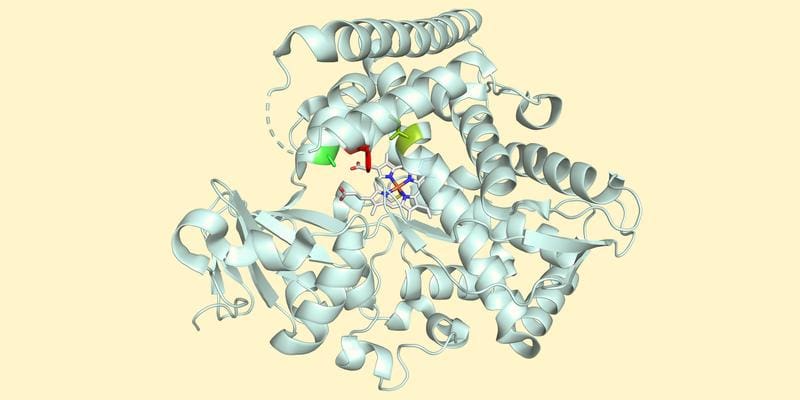University of Basel develops enzyme for sustainable MHAT reaction
Researchers at the University of Basel have modified a natural enzyme so that it catalyzes the challenging metal hydride hydrogen atom transfer (MHAT) reaction. This innovation enables more environmentally friendly and efficient production of complex molecules for drugs and fine chemicals, as published in the journal “Nature”.
Catalysts are key tools in green chemistry as they accelerate chemical reactions, save energy and reduce waste. The MHAT reaction is considered a promising method for producing complex, three-dimensional molecules with specific functions from two-dimensional substrates. In this process, a metal hydride transfers a hydrogen atom to a hydrocarbon, creating a reactive site that is linked to a functional group. The challenge is to control the precise three-dimensional arrangement of the atoms, as mirror-image molecules – known as enantiomers – can have different biological effects, which is crucial in the pharmaceutical industry.

Under the leadership of Prof. Dr. Thomas R. Ward, the research team used the lock-and-key principle of natural enzymes. They modified a haemoprotein so that the MHAT reaction takes place in its active center. Due to the specific structure of this enzyme pocket, the desired enantiomer is produced in 98 out of 100 cases, as the mirror image does not fit into it. This precision is difficult to achieve with conventional chemical methods. The enzyme is also energy-efficient and environmentally friendly, which makes it attractive for sustainable applications.
The research, part of the National Center of Competence in Research “Molecular Systems Engineering”, paves the way for more environmentally friendly production processes in the pharmaceutical and fine chemical industries. Adapting the enzyme to other starting materials remains a challenge, as its specificity is both an advantage and a limitation. The researchers are now working on solutions to this problem and on more sustainable ways of producing the metal hydride.
Original Paper:
Repurposing haemoproteins for asymmetric metal-catalyzed H atom transfer | Nature
The articles in the news section are produced by X-Press journalist office
Gender note. The personal designations used in this text always refer equally to female, male and diverse persons. Double/triple references and gendered designations are avoided in favor of better readability.




